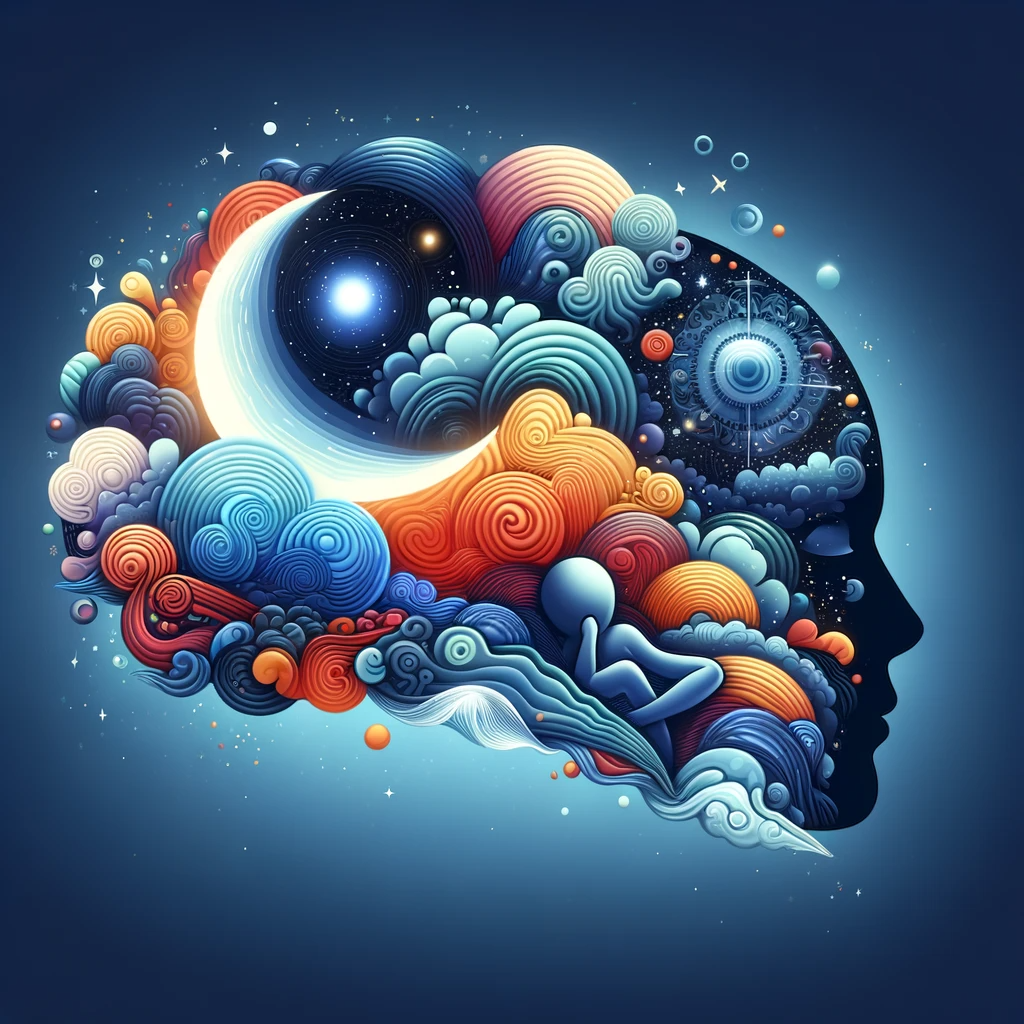Sleep and dreams are integral components of the human experience, offering crucial insights into our psychology. This article delves deeper into their complexities, presenting detailed case studies and analyses to provide a thorough understanding.
The Psychology of Sleep: A Deeper Dive
Restorative Function of Sleep:
- Sleep is vital for both physical and mental restoration. The brain engages in various processes during sleep, such as consolidating memories and repairing cellular damage.
Impact on Mental Health:
- Chronic sleep deprivation is linked to mental health disorders. A study by the University of Oxford found that insomnia is associated with an increased risk of depression.
Dream Psychology: Beyond the Basics
Freud’s Dream Analysis Revisited:
- Freud’s theory of dreams as wish fulfillment suggests that dreams represent unconscious desires and thoughts. He believed that analyzing these could reveal insights into a person’s psyche.
Contemporary Dream Theories:
- Modern interpretations view dreams as cognitive processes involving memory consolidation and emotional regulation. The ‘Continual-Activation Theory’ suggests dreams result from the brain’s attempt to synthesize and interpret neural signals during sleep.
Real-Life Case Studies
- Insomnia and Anxiety:
- Case Description: A 35-year-old woman suffering from chronic insomnia and anxiety.
- Analysis: Psychological assessment revealed her sleeplessness exacerbated her anxiety, creating a vicious cycle.
- Treatment: Cognitive-behavioral therapy for insomnia (CBT-I) was employed, leading to improved sleep patterns and reduced anxiety levels.
- Dream Analysis in Clinical Psychology:
- Case Description: A 40-year-old man experiencing recurrent nightmares following a traumatic event.
- Analysis: The nightmares were manifestations of repressed trauma.
- Treatment: Psychotherapy and dream interpretation were used, aiding in processing the trauma and reducing nightmare frequency.
Sleep Disorders: Case Examples
Narcolepsy:
- Case Description: A narcolepsy case where the patient experiences excessive daytime sleepiness and sudden loss of muscle tone.
- Treatment: Medications like modafinil and lifestyle changes were recommended.
The Debate on Dream Interpretation
Counterarguments to Traditional Theories:
- Some psychologists argue that dreams may not have specific meanings and could be merely by-products of neural processes.
- Others believe dreams might not necessarily reflect repressed desires but could be interpretations of random brain activity.
Conclusion
Understanding sleep and dreams is crucial in psychology as they play a pivotal role in our mental and physical well-being. While interpretations of dreams remain a subject of debate, their study offers valuable insights into our subconscious mind. Ongoing research continues to unravel the mysteries of sleep and dreams, contributing significantly to the field of psychology.




